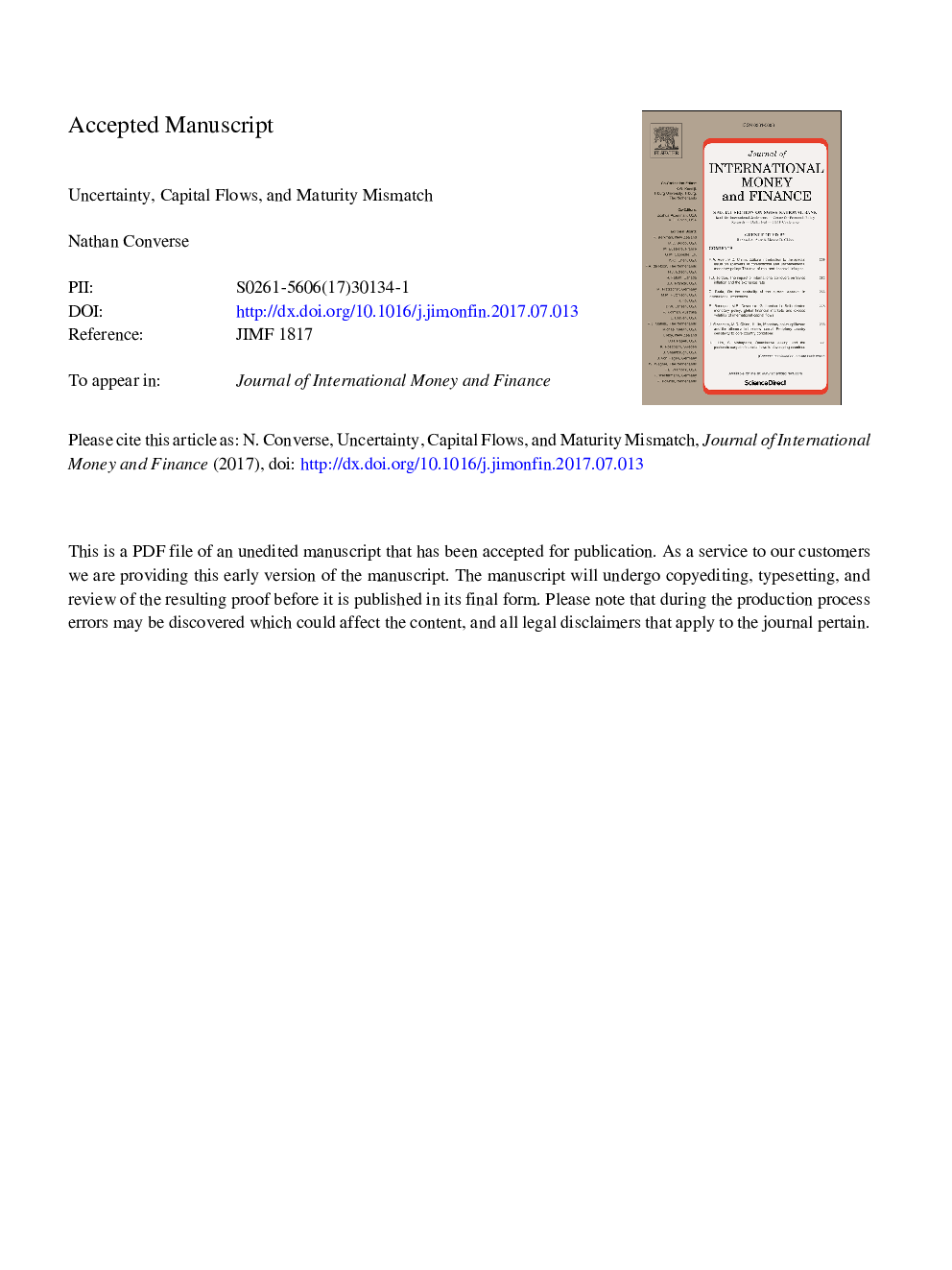| Article ID | Journal | Published Year | Pages | File Type |
|---|---|---|---|---|
| 11004871 | Journal of International Money and Finance | 2018 | 41 Pages |
Abstract
This paper explores a how the financial uncertainty generated by volatile international capital flows interacts with maturity mismatch on the balance sheets of nonfinancial firms to increase the volatility of output, investment, and total factor productivity (TFP) in emerging market economies. I build a model of a small open economy in which financial frictions force firms to fund long-term projects with short-term debt. In response to changes in the level of uncertainty regarding the availability of foreign borrowing, firms adjust their long-term investment, contributing to the volatility of investment and output as well as generating endogenous fluctuations in aggregate productivity. Using data from a panel of major emerging markets, I show that the volatility of portfolio debt flows negatively affects output by dampening investment, while the volatility of equity flows, which do not generate maturity mismatch, has no effect. Consistent with the mechanism in the model, the negative impact of capital flow volatility is larger at low levels of financial development and in industries with longer time-to-build lags. My estimates imply that shocks to capital flow volatility account for one fifth of the excess output volatility of the emerging markets in my sample relative to a set of small open advanced economies.
Keywords
Related Topics
Social Sciences and Humanities
Economics, Econometrics and Finance
Economics and Econometrics
Authors
Nathan Converse,
